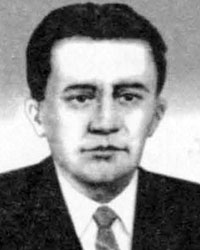SHARE WITH FRIENDS:
 The talented poet Sultan Jora entered our literature in the 30s together with such writers as Amin Umari, Usman Nasir, Aydin, Zulfiya, Zafar Diyar, Quddus Muhammadi. He lived only thirty-three years, of which thirteen years were devoted to literature and poetry. Sultan Jora was born on January 1910, 15 in the village of Kogoltom in the Shafirkan district of Bukhara in a peasant family. He lost his parents at the age of three or four and was raised by relatives. After receiving his primary education, he entered the Bukhara Land School and graduated in 1930. She teaches literature in schools, educational institutions, as well as at the Andijan State Pedagogical Institute. His work began in those years, and his first poem was published in 1927 in the magazine "New Way" under the title "In the bosom of labor." Then came his collections of poems, such as "Poems" (1933), "Fidokor" (1939), "Moscow" (1941), "Laughter" (1936), "My Joy" (1939), "Open Faces" (1939). appears.
The talented poet Sultan Jora entered our literature in the 30s together with such writers as Amin Umari, Usman Nasir, Aydin, Zulfiya, Zafar Diyar, Quddus Muhammadi. He lived only thirty-three years, of which thirteen years were devoted to literature and poetry. Sultan Jora was born on January 1910, 15 in the village of Kogoltom in the Shafirkan district of Bukhara in a peasant family. He lost his parents at the age of three or four and was raised by relatives. After receiving his primary education, he entered the Bukhara Land School and graduated in 1930. She teaches literature in schools, educational institutions, as well as at the Andijan State Pedagogical Institute. His work began in those years, and his first poem was published in 1927 in the magazine "New Way" under the title "In the bosom of labor." Then came his collections of poems, such as "Poems" (1933), "Fidokor" (1939), "Moscow" (1941), "Laughter" (1936), "My Joy" (1939), "Open Faces" (1939). appears.
As can be seen from the names of the poems and collections, in them the poet narrates the pain, joy, and happiness of his contemporaries.
Sultan Jora is also known to the reader as the author of a number of lyro-epic epics and fairy tales. His fairy tales such as "Swallow" and "Paradise" express the romantic world of the young reader. In the poetic tale "Blue Carpet" the poet reveals the inner world and secrets of young people through the extensive use of folklore motifs. In the epic "Karim and Kunduz" he talks about work and its pleasures.
The poet's epic "Bruno" is an important stage in his work. It embodies the immortal image of Jordan Bruno.
Sultan Jora has created many works for children. His works "Parade of letters", "Assembly of punctuation marks", "Liar", "Pocket", "How many months", "Missing greetings" are the best examples of children's literature.
During the war years, the work of Sultan Jora rose to a new level. He sang patriotic ideas in a number of his poems, such as "The Voice of the Machine Gunner", "Muhammad the Gunner", "Our Spear" and "The Rider".
During these years, the poet also created his own drama "Will" on the theme of war. Among his works on the theme of war, the poem "Nostalgic greetings" is of special importance. In it, parents, husband and brother, boy and girl, curse the war that caused the separation of the tribes.
Sultan Jora died heroically on November 1943, 10 on the fronts of World War II.